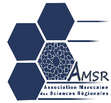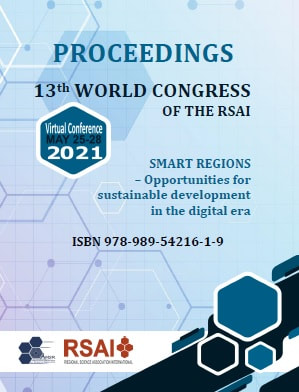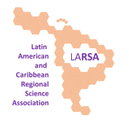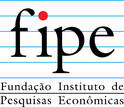Call for papers: 2021 RSAI World Congress
|
The 2021 RSAI World Conference will be held from 25 to 28 May, 2021. It will be organized by the Moroccan Section of the Regional Science Association International. The meeting is open for the worldwide regional science community and aims to bring together the key elements of multidisciplinary regional science research and to provide a scientific platform for presenting and discussing research at the frontiers of the spatial sciences in a broad sense. The themes addressed zoom in particular on the pressing challenges of achieving the Sustainable Development Goals in the light of the socio-economic impact of covid-19, in both developed and developing economies, and cover spatial dimensions ranging from local to global development. Such challenges relate to both people and places, and call for innovative and critical contributions from a conceptual-theoretical, statistical-modelling, qualitative, practical evidence-based, or governance perspectives.
Consequently, topics such as urban-rural development, migration, spatial and resources location, border effects, urbanization, sustainable and circular cities, mobility, land use, environmental quality, disaster management, energy transition, culture, poverty, segregation, spatial justice, social justice, gender, social enterprises, policy and governance, entrepreneurship, spatial statistics and modelling are important ingredients of the 2021 World Congress. A new challenge to regional science research is formed by the emerging digital technology and its implications for analysis, monitoring, evaluation and forecasting spatial dynamics at all levels. Therefore, the potential of spatial and temporal big data, of social media information, and of the new spatial maps emerging from digitization and robotization are potential topics as well. Clearly, given the ongoing challenge, and threat, posed by the COVID-19 pandemic, studies dealing with the assessment of its impact on regional and urban economies will also be welcome. The Mediterranean area and Africa present their own challenges. Morocco, named Africa’s most attractive investment destination according to the Africa Investment Index 2018, is the ideal venue to address the frictions between the developing and developed worlds. The Ocher City Marrakech provides the perfect setting of a geographically varied and pristine landscape. It is well connected by air, and boasts plenty of high quality and modestly priced hotels. Regional scientists from around the globe can enjoy the desert in this historic tourist destination. Its geographical location at the foot of the Atlas Mountains and less than one hundred miles either from the Sahara dunes or the Atlantic beaches, is a guarantee for a creative and enjoyable regional science gathering. Our plan is to hold the World Congress at the Mogador Palace Hotel in Marrakech, Morocco. If instead the public health conditions remain uncertain, we have plans for an online mode. Details will be provided later. Because many potential attendees had previously submitted their abstracts for the 2020 edition of the World Congress, that was eventually postponed, the fees are unchanged. However, in case the conference switches online, fees will be considerably reduced. Plenary Speakers
Organization |
Proceedings
Important Dates
21 DEC 2020 | Opening Abstract Submission Portal 01 MAR 2021 | Deadline for Abstract/Session Submission 15 MAR 2021 | Notification of Paper Acceptance 30 MAR 2021 | Pre-registration Deadline 15 APR 2021 | Advance registration deadline 30 APR 2021 | Preliminary Program 25-28 MAY 2021 | Conference Online The Theme
The congress is open for the world-wide diverse audience of regional scientists including academics, policy makers and practitioners and aims to bring together the key elements of multidisciplinary regional science research and to provide a scientific platform for presenting and discussing research at the frontiers of the spatial sciences in a broad sense. The themes which will be addressed zoom in particular on the pressing challenges of meeting the 2030 Agenda of Sustainable Development Goals, in both developed and developing economies. As a new challenge to regional science research is formed by the emerging digital technology and its implications for analysis, monitoring, evaluation and forecasting spatial dynamics at all levels, the theme chosen for the congress is ‘Smart Regions- Opportunities for Sustainable Development in the Digital Era’. Therefore, the potential of spatial and temporal big data, machine learning, artificial intelligence, social media information, and of the new spatial maps emerging from digitization and robotization will be addressed by the congress as well, as these forces will have far-reaching impacts on human behaviour and interaction in space.Topics such as urban-rural development, migration, spatial and resources (al)location, border effects, urbanization, sustainable cities, mobility, land use, environmental quality, disaster management, energy transition, culture, poverty, segregation, spatial modelling are important issues covered in the 2021 RSAI World Congress.
|























